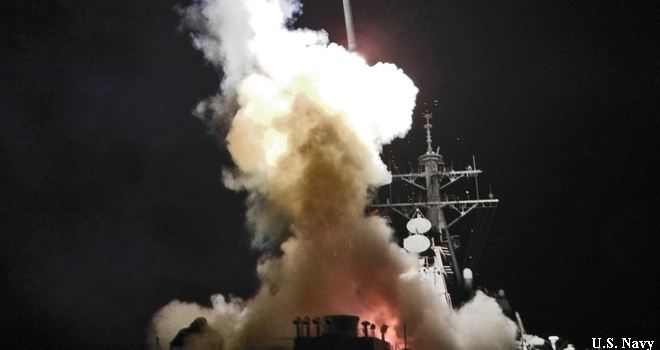In a confused message to President Obama, the House on Friday voted down both a bill to defund U.S. involvement in the Libya mission and a measure that would have granted the mission Congressional approval for one year.
All week, support had been building in the House for repudiating Obama’s handling of the war with most concerns focused on his failure to consult Congress and gain its approval before authorizing airstrikes. But that movement fell short of sending the harshest rebuke at Congress’ disposal — cutting off funds — although members registered their disapproval of the war and Obama’s handling of it by failing to give it the Congressional seal of approval.
The final vote on the defunding bill was 180 in favor and 238 opposed. In the first vote, the House overwhelmingly voted down a bill that would have authorized U.S. military action in Libya for one year, 295 to 123.
The Senate has no plans to cut off funding, so the vote was largely symbolic, but it still constitutes a small victory for the President and his intervention in Libya and a sign of his support among the Democratic caucus amid a divisive debate about his decision to launch airstrikes in Libya without Congressional approval.
The last time the House tried to enforce the War Powers Act was in 1999 when a resolution to support President Clinton’s air war in Kosovo failed on a tie vote, 213 to 213, and a measure calling for a declaration of war against Yugoslavia was resoundingly defeated.
White House spokesman Jay Carney expressed disappointment by the mixed signal on Libya at what he considers a crucial point in the conflict.
“We are disappointed by that vote,” he told reporters Friday at a briefing. “We think now is not the time to send the kind of mixed message that it sends when we are working with our allies to achieve the goals that we believe that are widely shared in Congress, that — protecting civilians in Libya, enforcing a no-fly zone, enforcing an arms embargo and further putting pressure on Qaddafi. And the writing is on the wall for Colonel [Muammar] Qaddafi, and now is not the time to let up.”
Support for Friday’s measure crossed party lines with those Republicans opposed to a majority of the President’s agenda and concerned about the country’s budget woes banding together with anti-war Democrats. Such ideologically diverse members as Speaker John Boehner (R-OH) and Dennis Kucinich (D-OH) spoke in favor of the bill, while Reps. Adam Smith (D-WA), Jim Moran (D-VA) and Sheila Jackson Lee (D-TX) spoke out against the effort to cut off funding.
“Rather than seek regime change from the start, the President chose to follow not lead with no plan for Col. Qaddafi’s rule…and at what cost, and what does success look like,” Beohner said on the House floor before the vote. “These are questions that the administration would not and could not answer…whatever your feelings about the War Powers act, it is the law of the land and simply cannot be ignored.”
Moran said there is a long history of presidents launching military action without Congressional approval, most recently in Bosnia, Somalia and Haiti.
“This is a moment to seize an opportunity to show the world and those who are thirsting for economic and political freedoms — that we are on their side,” Moran said. “It shouldn’t matter who’s in the White House but we should…fight tyranny in good economic times and bad.”
Rep. Tom Rooney (R-FL) offered the defunding measure, which would cut off funds for airstrikes or any other combat activities but would allow the U.S. to serve in a supporting role to the now-NATO-led operation, including air refueling, intelligence and search-and-rescue operations.
Members of Congress across the political spectrum have expressed outrage that Obama failed to consult or win Congressional approval before moving forward with an expensive military campaign amid growing anxiety over the nation’s spiraling debt. Others cite the 1973 War Powers Act, which requires the White House to obtain Congressional approval for the use of military force after 60 days of first initiating it, with a 30 day extension. The combat in Libya started well over 90 days ago.






